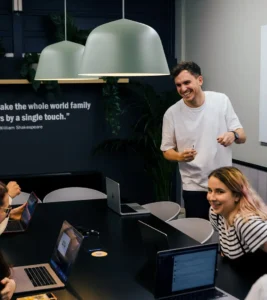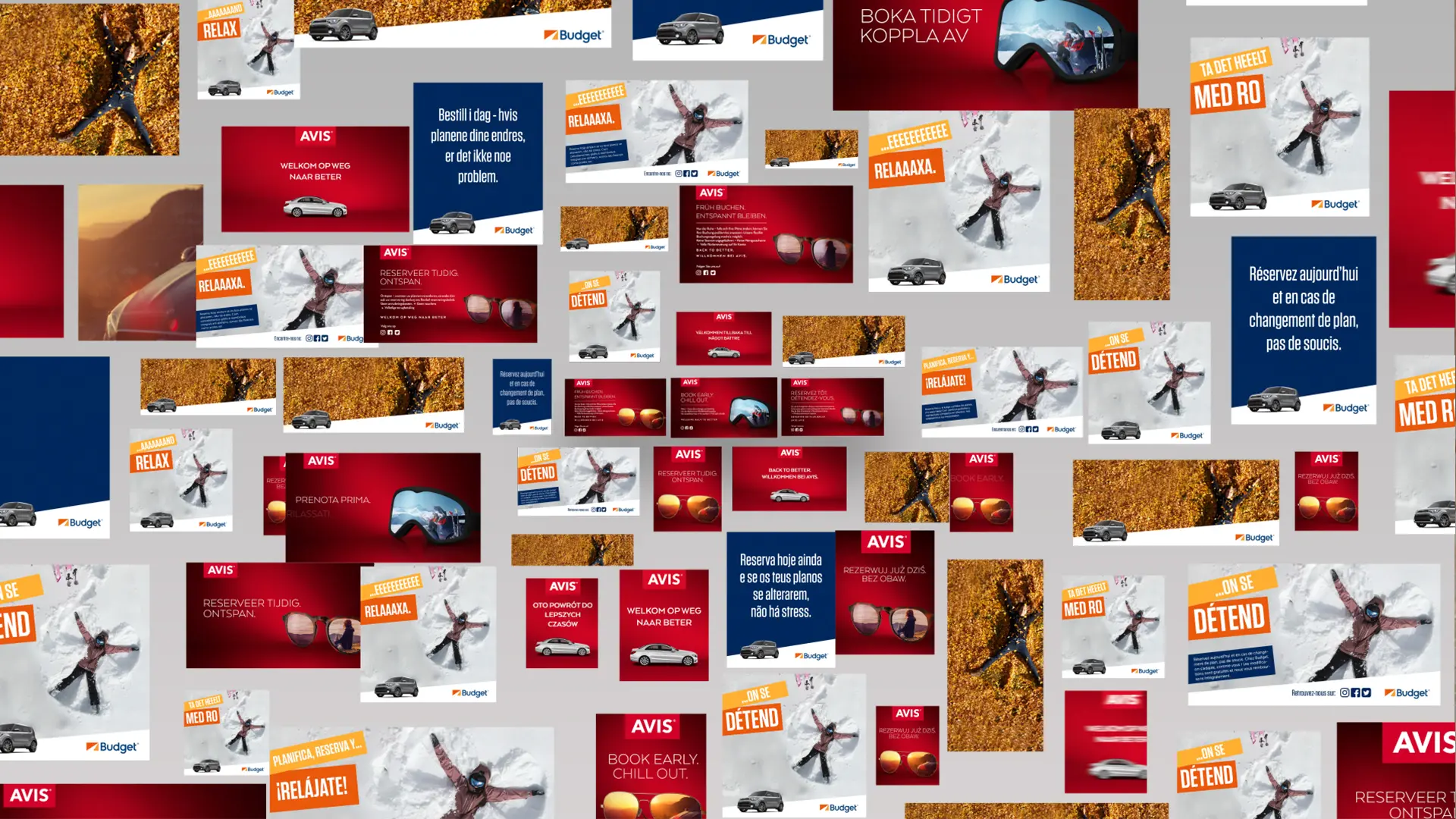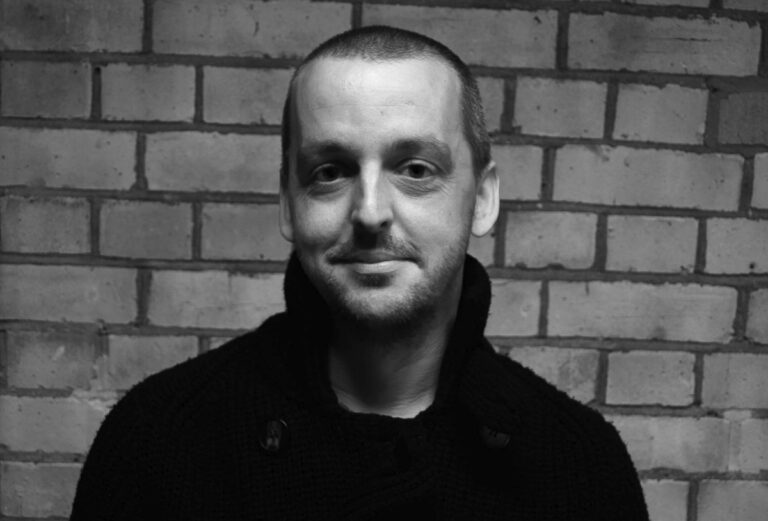Steve Barnes, one of the founding partners of Collective, which is radically changing the old-fashioned ways of the advertising industry through using new tech to supercharge their creatives, sits down and talkes to SMEToday.
How did you get started in the industry?
I got really lucky. I had a job before I left uni – a friend of mine was leaving his job and he put me forward, it was a German company and they had an office in London, but on arrival, the job wasn’t what I expected at all, just making letterheads.
So I spoke to the boss and explained I was unhappy and they said: “Why don’t you go to Germany then?” I said I’d like to do that and flew over to Germany, not being able to speak a word of German, and they all thought they were getting this really shit-hot London art director!
After working for two weeks they gave me the most amazing accounts to work on. I got to work on adidas and Audi. My first job was I had to brand a Zeppelin for the Love Parade! But where are the print specs for that? You know, “What resolution is a Zeppelin”…and all the all the applications were, obviously in German!
That was for Deutsche Telekom’s youth brand, I got to do so much cool stuff. I went to work in Italy, Munich, Nuremberg. It was just crazy. And when I came back, I had just had this fucking incredible portfolio!
I think the moral of that story is just say, “Yes” to everything, certainly, at that stage in your career. I could have left and I would’ve been back out in the same graduating year. I would’ve had no competitive advantage. I could’ve been out with 50,000 or so graduates trying to get an opportunity, but the opportunity was in front of me. I only had 20 quid in my bank account
How did you win over your first customers? First investors? First business partners?
We were started by a guy called Al Taylor – the initial opportunity was with Al, and he used to work on Superbike magazine before he went to University. While he was there he got to know all the guys at Honda, and then when he graduated, one of his contacts at Honda who he’d stayed in touch with said, can you do a few bits and pieces for me?
And those few bits and pieces grew and grew and grew to the point where he needed some help. So, I started helping him because I was freelancing at the time. And then it grew from that. When it really went stratospheric was when we heard on the underground grapevine that Simon Thompson (Honda’s renegade Marketing Director behind Cog etc), didn’t think we weren’t a creative agency but more into production, which kind of pissed us off. So we went away and spent two weeks in the pub with all of our contacts to work out what does the future of an online automotive ecosystem look like.
And then we got half an hour with Simon and we had 11 ideas and we were thinking, okay, if he buys one, that’ll do us for a year. And he bought all 11. We had to start a company and scale quickly. That’s the romantic version of how it all started…that’s the story I like to tell anyway!
How do you evaluate the past ups/downs of your business?
Everything’s a learning, isn’t it? We’re all learning. Arguably I started the company a bit too young. I think with hindsight I would have probably been better suited to spend a few more years learning the trade. So we made loads of mistakes.
The pace of change in our industry is what makes it interesting. So you’re constantly learning and changing and making mistakes and trying new ways of working, which is what it’s all about. In terms of evaluating them, they were all worth the time, they’re all valid and they all have merit. Adam [Cleaver, co-founder] has threatened to write a book at some point because we’ve made some absolute whoppers! But also, we’ve had some incredible success. If you hadn’t gone down those routes, you’d have missed all the good stuff too.
21 years in the industry is, for an agency…we’re the old guard now! I spoke to an agency the other day and they proudly told me they’d been going for 10 and it was like it was a badge of honor for them. You’re always learning.
What is a typical day like for you?
There isn’t one, and I like that. I try and stay as close to the work and the creative as I can because that’s my  passion. But as a business owner, you get dragged into everything else. So that’s the conflict. Wake up at the start of the day, look how horrendous your diary’s looking, and then see how you can fill in the gaps with good stuff!
passion. But as a business owner, you get dragged into everything else. So that’s the conflict. Wake up at the start of the day, look how horrendous your diary’s looking, and then see how you can fill in the gaps with good stuff!
It is critical in a creative business to have that interest and creativity still burning in you. I think if you lost that, the business would be quite different. I think it would be dull. I think it’d be boring. You can make a lot more money working in the city than what we do, so the trade-off has to be the fun.
What are the biggest challenges to being an entrepreneur?
The economy! The things that are outside of your control. They’re the sidewinders that have the biggest risk attached. COVID. Liz Truss. Donald Trump. A client pulling out of a market, you know, whatever they may be.
Any time your performance has had no impact on the outcome. That’s probably the most frustrating aspect. You always like to think that good work is enough, but you need a bit of luck along the way.
How do you handle the stress that comes with responsibility?
I go fishing. That’s my release. It’s not about escaping, for me, it’s about the process.
I like a process, I like gadgets as well, and I like thinking about stuff. And for me, fishing is a process. There’s a lot of tactics involved. I need to know I’m going fishing – it could be in a month, but I need to know I’m going so that I can think about it in advance. It’s what I think about when I go to sleep and it helps me get to sleep. I can switch off from work and let my mind drift off into a different space and I find that almost meditative. Being there is obviously great, but it’s the preparation and being able to put yourself into a different mindset that I find most valuable.
How do you take care of your own and the mental health of your workforce?
I’ve suffered from mental health issues in the past, so I’m very attuned to that.
Pastoral care is really, really key. Treating people with kindness is really key. Not being an arsehole is really key. Check-ins and all that kind of stuff is really key. And then on the more technical side, we have the best healthcare that’s available that takes no prior conditions into consideration, which a lot of them do, so if you have pre-existing mental health conditions, you can get on this. We have a service called Spill, which is really good, that exists on Slack, where you can just Slack a counsellor at any time of day and they will talk to you and act as a safety net and then defer you into a more kind of robust system of counselling if you need it.
Fundamentally, we are a team, and I think you look after your teammates, and your teammates look after each other as well.
What’s your definition of success?
Respect from my peers, clients and ex-staff.
People that we’ve come across and have spent time with us and have good things to say about the experience.
I love it when we have meetups with ex-staffers and clients they say it was the best time in their career. I love that. And it happens so often.
What’s your most satisfying entrepreneur moment so far?
I’ve always been quite happy to stay out of the limelight, to be honest. Certain account wins, you know, where I think replacing Honda with Hyundai was a big strategic one for example. Pivoting the business into 3D recently. I’ve been quite proud of that, it’s been something I’ve been really passionate about and driven forward.
Have you ever felt unsure of a decision you made?
Oh, daily. I would assume that unless you don’t, then you’re just making kamikaze decisions all the time, like some kind of psychopath. One of my greatest regrets is that there was a project manager that I let go about ten years ago, and I shouldn’t have, and I still regret it today. It was the wrong decision, but you make bad decisions every day. I suppose, especially in that instance, the only learning you can make from that is to cut yourself some slack.
What are your daily habits for connecting with your team?
We make sure we go into the office. I make sure I go into the office at least at least twice a week. And I try and go in on days that I’m not flat-out busy. I think that’s really key. Social activities, for me, are really important to try and seek out people that I haven’t spent time with, I’m very conscious of that. I make a note to myself that I’m going to catch them at some point and just see how they’re doing. I think you’ve got to be mindful of it. I think that with remote working and the pace of stuff, it doesn’t happen organically anymore.
How do you build trust with your employees?
I think that, without blowing my own trumpet, it’s one of my strengths. I’ve been told i have a high EQ.
I think one of the key measures of any good boss is emotional intelligence – it’s something I pride myself on, and if someone doesn’t feel that, I feel that I’ve failed them a little bit. I make a point to any new starter, making it really, really clear that I’m accessible.
That’s really, really important just to make it crystal clear so that the battle lines are drawn, so that they know if they’ve got a problem they can come to me but if they don’t come to me then I have to go to them, which is more of a problem. You need to establish that up-front because you used to get that through osmosis in the office.
Now, if the majority of your interactions are at the end of a Zoom call, you don’t get that nuance. I’ve had it actually recently where I heard that somebody was fucking terrified of me. And I was like, “Wow, you’re joking?” So after that, I made a point of going to talk to them to try and understand what made them feel like that and establish a more healthy dynamic.
Like I say, it’s something that’s really important to me, I try and make an effort to always keep an eye on it.
How do you keep your team motivated?
Just try and be normal. Try and be open. Try and treat people as you’d want to be treated. Why does it have to be serious all the time? Why can’t it be fun? You know, if the shit hits the fan, getting angry about it, it’s not gonna make it any less smelly. Alright, let’s just get on and fix it.
What is and how do you encourage company culture?
I think you’ve got to walk the walk. I think that’s absolutely key. I think everyone takes their cue from leadership. If you’re a do-as-I-say, not-as-I-do kind of company, that’s not for us. I think that the culture comes from the top and I think that you have to display the behaviours that you want to see in everyone else.
How do you plan on growing your business?
You’re just investing in the right people to do it. Identifying the talent and nurturing them to help them do that. You’ve got to realise that the next generation of growth isn’t probably going to come from us, it’s going to come from somewhere else. It’s going to come from the younger members of the team. So give them the opportunity to grow it for you, don’t get in their way.
Steve Barnes is the founding partner of creative and technology agency, Collective.


